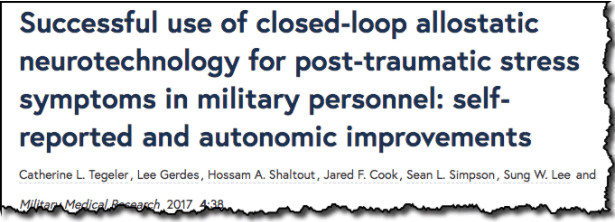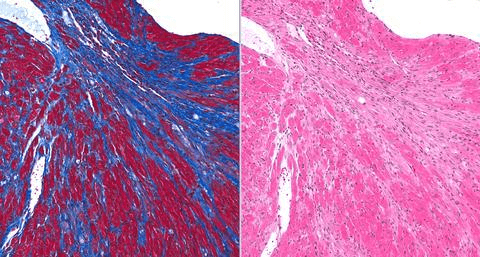
[cmamad id=”14292″ align=”center” tabid=”display-desktop” mobid=”display-desktop” stg=””]
PTSD, insomnia, depression, and anxiety are gone. All because of the sounds played by these headphones.
—–Important Message—–
Diabetic or pre-diabetic? Harvard study reveals – normal blood sugar in days (when you do this)…
There are several ways to reverse diabetes. This Harvard study led by Dr. Shoelson shows one way. And there are two more.
What makes this interesting is that you can drink this simple shake to instantly lower your blood sugar and kick-start your body’s cells into eating sugar.
Your inflammation will nosedive…AND you will even lose pounds.

———
Listen to this to stop anxiety in seconds
What can a man do to ease the stress of work and sex problems and life’s other burdens?
To find this out, I went to the most hardcore place that deals with problems like these – I spoke to the guys who work with soldiers coming back from war…
They told me that PTSD is a cluster of symptoms that are experienced by people after living through an extremely stressful situation.
And the things that work for PTSD also work GREAT for men who are feeling stressed out in general.
If you are living with stress and anxiety, please read today’s ENTIRE newsletter. It’s technically about PTSD but it’s also about YOU.
With PTSD the fight-or-flight mechanism becomes over-engaged.
People with with PTSD commonly experience flashbacks, anxiety, panic attacks, and memory problems. But there are many other related symptoms.
[cmamad id=”14293″ align=”center” tabid=”display-desktop” mobid=”display-desktop” stg=””]
Treatment options for PTSD are limited.
Many of the medical interventions for PTSD have nasty side effects.
Military scientists have successfully tested a chemical-free method for recording an individual’s brainwaves and playing them back as a sound – leading to incredible improvements in PTSD symptoms.

This pilot study was conducted at Wake Forest Baptist Medical Center and published in the journal Military Medical Research.
18 current and past military personnel were recruited for this study. Most of them were men.
The participants had PTSD lasting from 1 to 25 years.
Before the study, the participants were assessed for PTSD, insomnia, depression, and anxiety.
A number of physical markers were also assessed.
These included blood pressure, heart rate variability (HRV), reaction and grip strength, and blood and saliva markers for stress and inflammation.
The therapeutic intervention was a process called high-resolution, relational, resonance-based, electroencephalic mirroring (HIRREM).
HIRREM is a brainwave recording device attached to the head.
This device records a patient’s brain frequencies and plays them back through earphones as a sound.
When the brain hears these brain wave sounds it tends to autoregulate – to normalize the brain waves.
The brain tends to dampen erratic brain waves once it recognises them.
This process (which the scientists call self-optimization or biofeedback) occurs automatically.
No effort or thought is needed for HIRREM to work.
It is believed that erratic patterns in brain waves are the root cause of many of the symptoms of PTSD.
The study participants had a number of HIRREM sessions over 12 days.
The treatment produced significant reductions in PTSD, insomnia, depressive mood, and anxiety.
“83% of subjects reported PTSD scores that were at least 10 points lower. 78% of subjects reported insomnia scores that were at least 7 points lower than their baseline.”
These improvements were retained even six months after the final treatment.
The maximum benefit was seen at the one-month post-treatment point.
There was slight deterioration from then until the final assessment at six months.
Symptoms of traumatic brain injury and concussion were reduced over the six-month period.
“For the 15 individuals with a history of traumatic brain injury or concussion, there were also durable reductions in concussion-related symptomatology.”
Heart rate variability (HRV) is a good measure of the health of the nervous system – important information in working with PTSD.
The treatment greatly improved heart rate variability and other relevant measurements of the nervous system and heart.
“There were significant improvements in multiple measures of heart rate variability (HRV).”
Improvements were seen in blood pressure.
“There were significant improvements in systolic, diastolic, and mean arterial pressure as well as reaction testing.”
Grip strength improved and general inflammation as measured by C-reactive protein went down.
“Trends were seen for improved grip strength and a reduction in C-reactive protein (CRP).”
The study showed that a non-invasive, non-drug treatment could reduce physical and psychological symptoms of PTSD.
“Service members or veterans showed reductions in symptomatology of PTS, insomnia, depressive mood, and anxiety that were durable through 6 months.”
The participants averaged about 20 HIRREM treatments each over the 12 consecutive days.
And, while HIRREM treatment had shown some of these benefits before, this is the first time heart rate variability was tested in this context.
“This study is the first to report increased HRV (heart rate variability) or BRS (baroreflex sensitivity) after the use of an intervention for service members or veterans with PTS. Ongoing investigations are strongly warranted.”
This seems to be a very promising approach for such a difficult condition.
(You should see a health care professional about PTSD or any other serious conditions.)
I’ll have more to tell you about this technique and how to use it an upcoming newsletter. I’m still learning more about it and how you can apply it…
—–Important Message——
Six-cent formula clears penile chambers for better blood flow
This six-cent formula (made from stuff you probably have in your home) clears penile chambers of scar tissue and plaque… And it clears out the arteries that feed blood to the penis.
In the graphic below you can see the dramatic change as the scar tissue (blue) is completely dissolved and the pathways are cleared (right).

Imagine how much bigger and harder your erections can be when all that clogged gunk is cleared out and healthy blood can fill up and circulate through that space.
All for six cents a day.
Watch as your dick gets harder each day…and how you can finally make sweet love to her the way you used to.
Here is the formula (and how it got this man a 12-inch penis)
———–

https://mmrjournal.biomedcentral.com/articles/10.1186/s40779-017-0147-0
https://www.ptsd.va.gov/public/treatment/therapy-med/treatment-ptsd.asp
http://www.apa.org/monitor/jan08/ptsd.aspx
http://www.anxietycentre.com/anxiety-tips/15-ways-to-help-someone-with-anxiety-disorder.shtml
Psychotherapy is an effective medium to treat PTSD conditions. Post-traumatic stress disorders is a characteristic involving the failure to recover, after experiencing or witnessing a terrifying event. More than 5 million cases per year in the U.S suffer from PTSD disorders. Thus effective PTSD treatment is very important for the healing of an individual. Trauma-based psychotherapy involves different processes that are employed to process the traumatic experience. This involves visualizing, talking about the traumatic event or even thinking about the traumatic memory. Usually engaged through sessions a Psychotherapist helps to face the negative feelings about an event and helps to change the underlying mental beliefs or conditioning around it.Some of the trauma-based psychotherapies that are effective in PTSD treatment are Prolonged exposure (PE), Cognitive Processing Therapy (CPT) and Eye movement Desensitization and Reprocessing (EMDR). These involve talking to the therapist about the negative feelings about the incident and doing things that one may have stopped doing since the trauma. It involves opening up to the provider to reframe the negative thoughts about a trauma while calling the trauma to the mind. other types of PTSD treatments involve interventions like Brief Eclectic Psychotherapy (BEP), Narrative Exposure Therapy (NET) Written Narrative Exposure and Specific cognitive behavioural therapies (CBTs) for PTSD. These modalities involve expressing and releasing the suppressed or embedded thoughts about a traumatic event that, a patient may have suppressed in his or her memory and bringing them into the open to reframe the negative conditioning around an event and being able to heal, let go and positively move forward with life.During these treatments, medications can play an effective role in helping the patient go through the healing and recovery process. The antidepressants that are usually administered for PTSD are called SSRIs (selective serotonin reuptake inhibitors) and SNRIs (serotonin-norepinephrine reuptake inhibitors). The medications that are most effective for PTSD are Sertraline(Zoloft), Paroxetine (Paxil), Fluoxetine (Prozac)and Venlafaxine (Effexor).Various complementary and integrative approaches to PTSD treatment can include alternative modalities like yoga, meditation and acupuncture interventions. Along with that, it is a good idea to also follow therapies which help to process the reactions to the trauma and manage symptoms related to PTSD. This includes Stress Inoculation Training (SIT), Present-Centered Therapy (PCT) and Interpersonal Psychotherapy (IPT) which employs ways to manage stress and reduce anxiety while engaging with the present life issues. It also helps to engage with any issues with interpersonal relationships that may have been affected by the traumatic event.
2. How should you be dealing with anxiety?
Anxiety, the silent killer of the 21st century might sound too easy and light to engage but for many people, it can actually paralyze their ability to engage and enjoy life. It can have a profound and powerful negative impact on those who go through it. The ones who suffer from an anxiety disorder can be affected physically, mentally, emotionally and spiritually. It can lead to very difficult challenges like where the individual can be severely frightened, confused and frustrated. When people get inward focussed and have repetitive thoughts about a negative event that has happened in the past or brood about the unknown, it can cause confusion and lead to a wide range of wild emotions affecting their spiritual and emotional health.Since anxiety disorder is a type of behaviour which is a result of repetitive habits or learned models from childhood, it is important to change the thought processes around an event. Since Anxiety is based on fear and is usually dependant on inward based thoughts, the best approach is to take your mind off your thoughts. Concentrate on a different topic or engage your mind on a creative subject that one is passionate about. Since anxiety disorder is caused by unhealthy behaviour, taking professional help e.g in engaging with Cognitive Behavioral Therapy (CBT) which is known as the gold standard for anxiety disorder is very important. Low self-esteem is usually linked to anxiety disorders, so it is important to look upon the self more positively and engage with more enjoyable and self-appreciative activities that can soothe the negative response.Eating well-balanced meals also play an important role in keeping the body’s health requirements in check, since prolonged anxiety disorders can cause energy burnouts in the body. It is very important not to abuse alcohol or caffeine since both of the can aggravate anxiety and can trigger panic attacks in the body. Taking the time to be engaged in meditative and relaxing practices like yoga is very important as it can help to relax the body processes. This gives the mind a serene and calm environment to heal and recharge itself. Light exercises and following deep breathing exercises also help to regulate the body’s overall health and can help better engage with the body’s reaction to anxiety disorders.

Leave a Reply